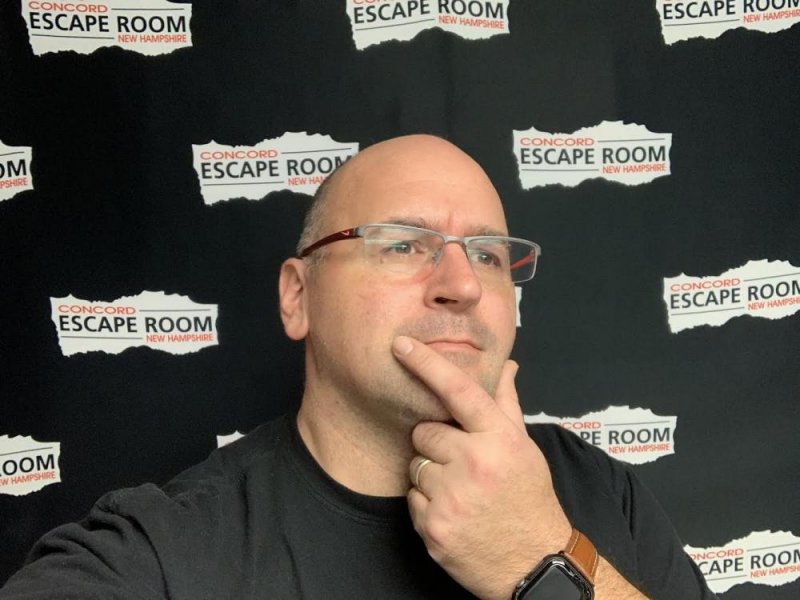Gregory Slossar, owner of Escape Room in Concord, has to search a bit to find a silver lining to the pandemic. “If nothing else, I’m golfing better,” he said. “That’s one benefit to all of this.”
More free time has improved his golf game, but other benefits are harder to come by. At a time when people are spending as much time outdoors as possible, business is down at Escape Room. The whole premise — being locked in a small room and solving riddles to get out — seems at odds with the social distancing and precautions that many people are practicing these days.
 That premise, more than any actual risk, is what’s hurting Slossar’s business.
That premise, more than any actual risk, is what’s hurting Slossar’s business.
“No matter how safe it is, it’s about the customer and their perception of the risk,” Slossar said. “The majority of people just don’t want to be in any environment where they’re inside, that’s not their home. I have the same feeling myself — if I go out to a restaurant I sit outside.”
Slossar has taken steps to make Escape Room as safe as possible. He’s increased the time between games from 2 hours to 3. He’s invested in UV lights to disinfect the rooms between uses and stepped up cleaning measures. Games are no longer filled with more than one group — meaning that strangers aren’t together in the room. Normally, games involve 8 people, and groups that want a private game need to reserve all 8 tickets, so making all games private has eaten into profit.
“In the past, we’ve been getting $200 per game, now we’re looking at $60 per game,” Slossar said. Coupled with the fact that there are fewer games being offered each day, revenue is down about 75% at Escape Room. Most of the games being played are from returning customers — hardly anyone new is walking through the doors, Slossar said.
To help keep business going with a fraction of the cashflow, Slossar negotiated a reduced rent with his landlord through December. At first his landlord didn’t want to negotiate, until Slossar made it clear that he was willing to close up shop if rent wasn’t reduced.
“I came in one day saying, ‘I can’t. Knowing what was going to happen [with the pandemic], there’s really no way I can do this,’” he said. The landlord, recognizing that finding another tenant in an economic shutdown was unlikely, acquiesced.
Slossar said he’s lucky to have no debt, which makes it easier to keep business going during lean times. Still, he’s wary of what will happen when his reduced rent is up for renewal in December. He plans to take a critical and realistic look at business come September, and decide whether Escape Room will survive the pandemic.
“I might just pull the plug,” he said. “We’re making enough money to pay rent, but it’s nothing like it was. I don’t want to run games just to pay rent and stay alive.”
If he does close, Slossar has a few options — he could put his equipment and technology in storage and try to wait out the pandemic. Or, he could sell it second-hand and leave the business behind for good. Right now, he’s exploring all avenues, but the idea of rebuilding a business after the pandemic is daunting.
“It’s like having children: you have your child, raise them, and now all of a sudden you have a baby again,” he said. “It’s a lot of work to put into it to tear it all down and start over again.”
(Pictured above: Gregory Slossar, owner of Escape Room in Concord, is unsure whether his business will make it through the pandemic with revenue down 75%.)
This story is part of the 50 Businesses, 50 Solutions series, shared by partners in The Granite State News Collaborative, that aims to highlight how business leaders across the state, from mom and pop shops, to large corporations have adapted to meet the challenges and disruptions caused by the novel coronavirus in the hopes others may be able to replicate these ideas and innovations. Tell us your story here. For more information visit collaborativenh.org.


 Current Issue - April 2024
Current Issue - April 2024